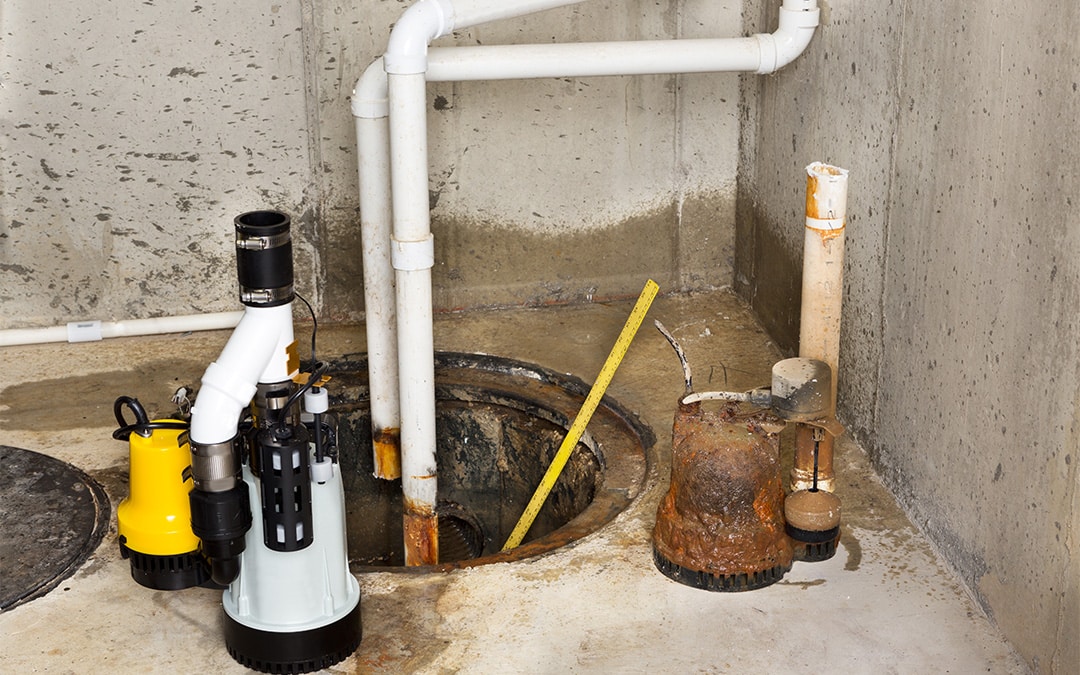Basements often find themselves at the frontline in the constant battle against water intrusion, susceptible to moisture seepage. This is especially true in regions like Westchester County, New York, where heavy rainfall and geological factors such as sloping landscapes can increase the risk. To combat this threat, homeowners and property managers turn to the unsung hero of basement protection: the sump pump. As a loyal guardian against flooding and water damage, sump pumps are crucial in maintaining dry and safe environments below ground level.
In this article, we’ll look into the significance of sump pumps, their operational mechanics, and professional installation
Understanding Sump Pumps:
At the heart of a sump pump’s functionality lies its ability to quickly remove excess water from basements and crawl spaces. Installed within a designated pit, known as a sump basin, these devices stand ready to spring into action at the first sign of rising water levels. As precipitation saturates the soil surrounding a structure, particularly during heavy rainfall, water finds its way into basements through cracks in foundations, poor drainage systems, or uneven terrain.
Here, the sump pump comes into play, promptly activating to pump water away from the building’s foundation and directing it safely outside through a discharge pipe. By efficiently mitigating water accumulation, sump pumps serve as indispensable safeguards against the destruction of flooding and moisture-related damage, preserving the structural integrity and livability of homes and businesses.
The Need for Basement Protection:
The importance of basement protection cannot be overstated in regions like Westchester County, where inclement weather and geological factors join forces to pose a constant threat of water intrusion. Left unchecked, excess moisture can wreak havoc on foundations, undermine structural stability, and foster the growth of mold and mildew, posing health risks and incurring substantial repair costs.
While various methods exist to mitigate basement flooding, from exterior drainage systems to foundation sealing, none offer the comprehensive defense provided by a sump pump. Unlike surface-level solutions, sump pumps target the root cause of basement moisture, actively intercepting and removing water before it can wreak havoc on interior spaces.
As a proactive measure against the forces of nature, sump pumps stand as indispensable allies in the ongoing battle to keep basements dry and habitable, offering homeowners and property managers alike a sense of security and peace of mind in the face of unpredictable weather patterns.
Why Hire a Professional to Install Your Sump Pump:
When it comes to the installation of a sump pump, precision and expertise are paramount. While the temptation to undertake DIY installation may arise, the stakes are too high to risk improper implementation. Entrusting the task to a professional plumber ensures that the installation process is conducted with meticulous care and adherence to industry best practices.
With years of experience in the field, our team possesses the specialized knowledge and technical proficiency needed to assess your property’s unique needs, select the appropriate sump pump system, and execute flawless installation, all while minimizing disruption to your daily routine. By choosing a professional plumber from Flotechs Plumbing and Heating for your sump pump installation needs, you can rest assured knowing that your basement is equipped with the highest standard of protection against water intrusion, providing you with invaluable peace of mind and safeguarding your property against the costly repercussions of flooding and moisture damage.
At Flotechs Plumbing and Heating, we take pride in being your go-to plumbing and heating experts in Yonkers, also known as “the city of hills, ” meaning water travels easily. We also serve nearby Mt. Vernon, and Bronxville. As a reliable and professional team, we are dedicated to providing top-notch services to residential and commercial clients throughout Westchester County.



